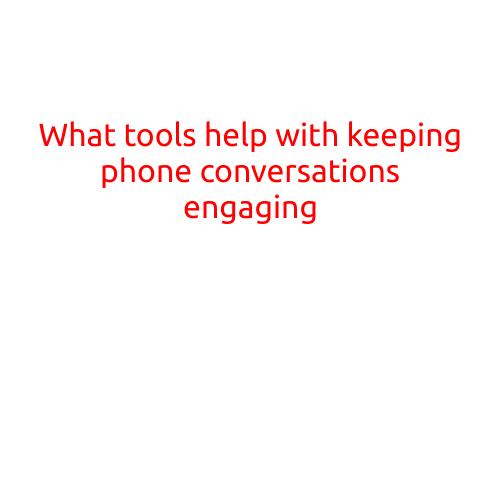
What are the Common Mistakes in Being Persuasive on Phone?
Effective communication is crucial in building strong relationships and achieving success in our personal and professional lives. When it comes to being persuasive, whether it’s in business negotiations, sales pitches, or everyday conversations, being able to convey our message clearly and convincingly is essential. In today’s digital age, phone calls have become a popular method of communication, and being persuasive on the phone requires a different set of skills than in-person conversations. In this article, we’ll highlight some common mistakes to avoid when being persuasive on the phone.
1. Not Preparing the Conversation
One of the most significant mistakes people make when being persuasive on the phone is not preparing the conversation. This can lead to a lack of clarity, meandering conversations, and failure to effectively convey your message. Before making a call, take time to:
- Define your goals and objectives
- Identify your target audience
- Anticipate potential objections and concerns
- Prepare key points and examples to support your argument
- Practice your tone and language to ensure confidence and clarity
2. Not Showcasing Emotional Intelligence
Emotional intelligence is critical in being persuasive on the phone. People are more likely to engage with someone who understands and empathizes with their emotions, concerns, and needs. Make sure to:
- Listen actively and attentively
- Show empathy and understanding
- Acknowledge and validate the person’s perspective
- Display enthusiasm and passion for your topic
3. Not Being Clear and Concise
Long, rambling messages can be overwhelming and confusing. Keep your language clear, concise, and focused on the main points. Avoid using jargon or technical terms unless necessary, and ensure you’re using a pace that allows the listener to follow your conversation.
4. Not Adjusting Your Tone and Language
Tone and language can greatly impact the effectiveness of your persuasion. Be aware of your tone and adjust it according to the situation and audience. For example:
- Avoid being too aggressive or pushy
- Use humor and anecdotes judiciously
- Adapt your language to the listener’s level of understanding
5. Not Handling Objections Effectively
Anticipating and handling objections is a crucial part of being persuasive on the phone. Practice your responses to common objections and be prepared to:
- Acknowledge the objection and show empathy
- Provide clear and concise answers to address concerns
- Offer alternative solutions or compromises
6. Not Building Rapport
Building rapport is essential in establishing trust and credibility. Make an effort to:
- Find common ground and shared interests
- Use positive and respectful language
- Show enthusiasm and passion for the topic
7. Not Following Up
After the call, it’s crucial to follow up and ensure the conversation has been effective. This can be as simple as:
- Sending a summary of the discussion via email
- Confirming any next steps or actions
- Expressing gratitude and reiterating your interest in working together
Conclusion
Being persuasive on the phone requires a unique set of skills, including preparation, emotional intelligence, clarity, and the ability to handle objections. By avoiding common mistakes and focusing on building rapport, conveying a clear message, and anticipating next steps, you can significantly improve your persuasive abilities on the phone. Remember, practice makes perfect, so keep honing your skills and adapting to different situations to become a master persuasive communicator.





